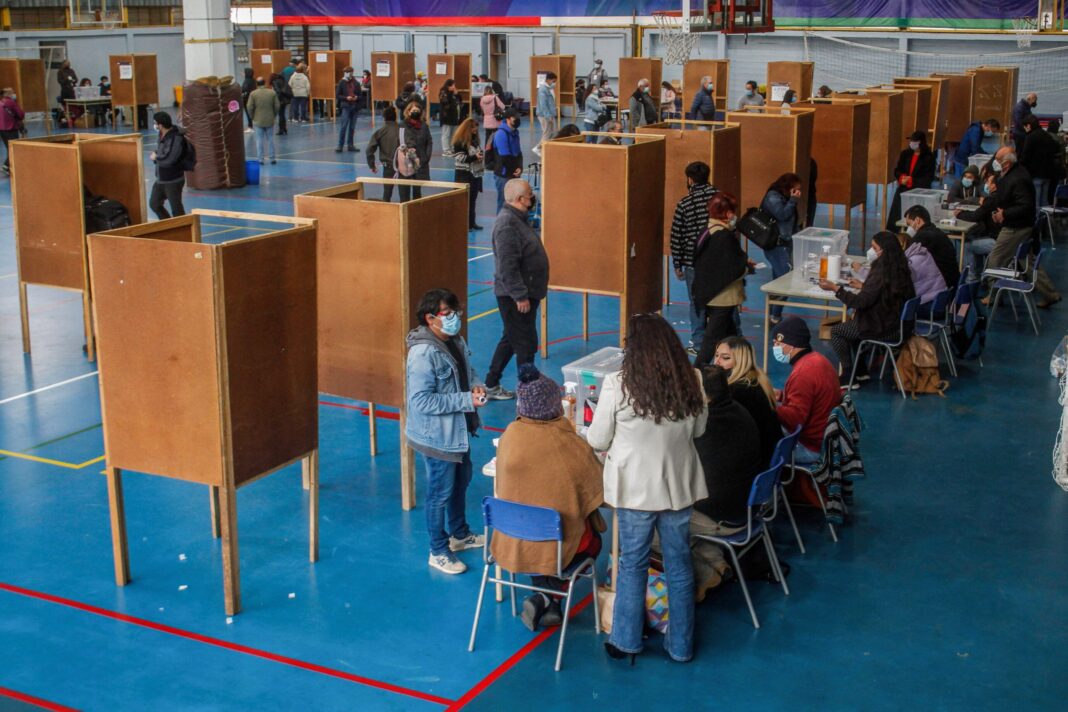BTN News: For the first time in its democratic history, Chile will implement mandatory voting in its upcoming municipal elections on October 27, 2024. This shift from voluntary to compulsory participation marks a significant change in the nation’s electoral process, one that has sparked intense debate among politicians, legal experts, and citizens. With over 15 million eligible voters, including a notable number of foreign residents, the move to mandatory voting aims to increase civic engagement but has also raised questions regarding fines, enforcement, and the inclusion of non-citizen voters. The decision, backed by the government of President Gabriel Boric, includes a presidential veto to adjust specific regulations, further fueling controversy and public interest ahead of the elections.
Chile’s First Mandatory Voting Election: A Turning Point
The municipal elections of October 2024 will be a historic event for Chile, as it will be the first time that all eligible voters, including both Chilean citizens and foreign residents who have lived in the country for more than five years, are required to vote. Previously, mandatory voting was only applied in two constitutional referendums in 2022 and 2023. Now, it will extend to local elections, covering the selection of mayors, councilors, regional governors, and councilors.
Why Mandatory Voting Now?
The government argues that compulsory voting is necessary to ensure broader democratic participation, especially in local elections where turnout has traditionally been low. President Gabriel Boric’s administration believes this policy will strengthen Chile’s democratic institutions by making elections more representative of the entire population.
The Role of the Presidential Veto
Recently, President Gabriel Boric’s administration presented a veto to address controversial elements in the law passed by Congress, which outlined the regulations for these elections. The veto aims to clarify and adjust specific rules, such as allowing the elections to take place over two days, the exact amount of fines for non-voters, and the application of sanctions for both Chileans and foreign residents. The government also proposed amendments regarding the use of social media for political campaigns and the designation of the election days as a mandatory public holiday.
Controversy Over Voter Fines: How Much Will Non-Voters Pay?
One of the most heated debates revolves around the fine for failing to vote. Initially, the proposed fine ranged from 33,000 pesos (around 34 USD) to as much as 200,000 pesos (211 USD). However, President Boric’s new proposal suggests a flat fine of 33,000 pesos. This amount has sparked criticism from both ends of the political spectrum, with some arguing it is too lenient, while others feel that any form of penalty undermines democratic freedom. Initially, exemptions were considered for senior citizens over 70 and pregnant women, but these exceptions were later removed from the revised text.
Foreign Voters in the Spotlight: Rights and Responsibilities
The inclusion of foreign residents in the electoral process has emerged as a major point of contention. Under Article 14 of Chile’s Constitution, foreigners who have resided in Chile for more than five years are granted the right to vote. However, the recent veto suggests that these individuals, now part of the mandatory voting system, could also face fines if they do not participate. This shift from voluntary to compulsory voting for foreign residents marks a departure from earlier positions and has raised concerns about how this will be enforced and its potential impact on voter turnout.
Debate Over the Political Impact of Migrant Votes
The potential influence of foreign residents’ votes remains uncertain, with many speculating on how this demographic will lean politically. Recent immigration trends, especially from countries like Venezuela and Haiti, have increased the number of eligible foreign voters to 676,028, according to the Chilean Electoral Service (Servel). While some politicians, particularly from the opposition, suggest that this influx could favor their parties, there is little concrete data to confirm these assumptions. However, the opposition has criticized the government’s move, alleging it is an attempt to sway the electoral outcome in favor of the ruling coalition.
Opposition Pushback: Accusations of Electoral Manipulation
Opposition leaders have accused President Boric’s administration of using the veto as a tool for electoral advantage. Diego Schalper, a prominent figure from the center-right National Renewal party, claimed that the government is seeking to manipulate voting rules to secure a favorable outcome, particularly by influencing the participation of foreign voters. To counter this, lawmakers from the Socialist Party have proposed legislation that would limit the participation of foreign residents to local elections only, a move aimed at reducing perceived electoral interference.
What Comes Next? Chile Prepares for a New Voting Era
As Chile approaches its landmark municipal elections, the debate over mandatory voting continues to intensify. The stakes are high not just for local governance but for the future of Chile’s democratic processes. With changes in voter eligibility, fines for non-compliance, and a heated political landscape, all eyes will be on the outcome of these elections to see how the new rules play out in practice.
Conclusion: The Future of Voting in Chile
The move towards mandatory voting represents a significant shift in Chile’s electoral landscape, aiming to increase civic participation while also sparking considerable debate over fines, enforcement, and the role of foreign voters. As the country prepares for these crucial municipal elections, both supporters and critics of the new rules will be closely watching to see how these changes impact voter turnout and the overall democratic process.


